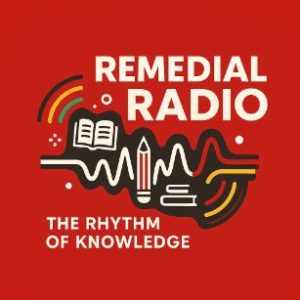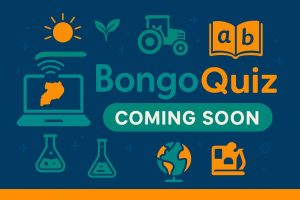Learn about open cast and underground mining, the environmental impacts of mining, and challenges related to oil extraction and land ownership in Uganda. Ideal for Geography learners and educators.
Introduction
Mining and oil extraction are powerful drivers of development, especially in resource-rich countries like Uganda. These activities provide employment, boost exports, and attract foreign investment. However, they come with various challenges, from environmental degradation to conflicts over land ownership. Understanding the types of mining, their impacts, and the complexities of oil extraction is essential for learners, policymakers, and citizens.
This blog explains the different types of mining (open cast and underground), environmental concerns caused by mining, and the growing challenges of oil extraction and land rights in Uganda.
Types of Mining: Open Cast and Underground
Open Cast Mining (Surface Mining)
Open cast mining is the most common and economical method used when minerals are located close to the earth’s surface.
Features:
- Large holes or pits are dug to remove minerals.
- It is cheaper and safer than underground mining.
- Often used for minerals like limestone, clay, and sand.
Advantages:
- Easy to operate and monitor.
- Less expensive and more productive.
- Safer for workers since it’s done in open areas.
Disadvantages:
- It removes large portions of the earth’s surface.
- Causes more environmental destruction (deforestation, dust, water pollution).
Underground Mining (Deep Mining)
Underground mining is used when minerals are located deep below the surface.
Features:
- Tunnels and shafts are dug to reach the mineral layers.
- Used for minerals like gold, copper, and tin in mountainous or hard rock areas.
Advantages:
- Preserves the surface environment.
- Ideal for deep mineral deposits.
Disadvantages:
- Expensive to operate.
- Dangerous due to the risk of cave-ins, gas leaks, and poor air circulation.
- Requires skilled labor and modern technology.
Environmental Impacts of Mining
While mining supports economic growth, it can have severe effects on the environment and human health if not properly managed.
a) Deforestation and Soil Degradation
- Open cast mining removes trees and vegetation, leading to soil erosion and loss of biodiversity.
- The land becomes less fertile for agriculture and wildlife.
b) Water Pollution
- Chemicals like mercury and cyanide used in gold mining may enter rivers and lakes.
- Polluted water affects fish, livestock, and local communities.
c) Air Pollution
- Dust from mining sites reduces air quality and causes breathing problems.
- Blasting releases harmful gases into the atmosphere.
d) Landscape Destruction
- Mining alters the natural shape of the land, leaving pits, waste dumps, and abandoned mines.
e) Noise and Vibration
- Blasting and machinery operations cause noise pollution, which affects both people and animals.
f) Climate Change
- Mining and oil extraction release greenhouse gases that contribute to global warming.
In Uganda, environmental degradation has been reported in areas like Kilembe (copper mining) and Karuziika (gold mining). Oil exploration in the Albertine Graben has also raised serious concerns about the effects on Murchison Falls National Park and Lake Albert ecosystems.
Challenges of Oil Extraction and Land Ownership in Uganda
Uganda discovered commercially viable oil reserves in the Albertine Graben region in 2006. Since then, oil development has promised economic transformation—but it has also created new social, political, and environmental challenges.
a) Land Ownership Conflicts
- Most oil is found in areas occupied by local communities who practice farming or fishing.
- Some land is customarily owned and not officially titled, making compensation difficult.
- Evictions, forced displacements, and poor compensation have led to legal battles and protests.
b) Delayed Compensation
- Many families have had their land valued and taken over for oil roads, pipelines, and processing plants, but compensation is often delayed or inadequate.
c) Lack of Community Involvement
- Local communities feel excluded from decision-making.
- Most oil-related decisions are made at the national level, leaving residents uninformed or marginalized.
d) Environmental Threats
- Oil spills, gas flaring, and pipeline leaks pose a threat to farming, fishing, and wildlife habitats.
- The delicate biodiversity of Lake Albert and surrounding forests is at risk.
e) Corruption and Lack of Transparency
- Oil wealth may be misused if transparent systems are not in place.
- Some fear the “resource curse,” where oil leads to conflict and inequality instead of prosperity.
Solutions and Recommendations
To balance resource extraction and sustainable development, Uganda must:
- Strengthen land laws and provide land titles to citizens.
- Ensure fair and timely compensation for displaced people.
- Enforce strict environmental regulations and restore mined land.
- Increase public awareness and community involvement in mining and oil projects.
- Promote transparency in the oil sector through watchdog institutions like the Petroleum Authority of Uganda.
- Invest in cleaner mining technologies and renewable energy alternatives.
Conclusion
Mining and oil extraction offer significant opportunities for Uganda’s development. However, their success depends on how well the country handles issues such as:
- Choosing the right type of mining (surface or underground),
- Managing the environmental impacts,
- Addressing land ownership and compensation fairly, and
- Ensuring transparency and inclusiveness in oil projects.
By balancing economic gains with environmental protection and social justice, Uganda can truly benefit from its natural resources in a sustainable way.
Frequently Asked Questions (FAQs)
1. What is the difference between open cast and underground mining?
Open cast mining is done on the surface and is cheaper, while underground mining involves digging tunnels to extract deep minerals and is more expensive.
2. How does mining affect the environment?
Mining causes deforestation, soil erosion, air and water pollution, noise, and can destroy natural habitats if not properly managed.
3. Why is oil extraction controversial in Uganda?
It affects landowners, causes displacement, and poses environmental risks, especially in sensitive areas like national parks and lakes.
4. What challenges do people face when oil is discovered on their land?
They often lack land titles, get poor compensation, or are displaced without proper consultation or support.
5. How can Uganda make mining and oil extraction more sustainable?
By enforcing environmental laws, compensating affected people fairly, involving local communities, and using transparent systems.


Leave a Reply